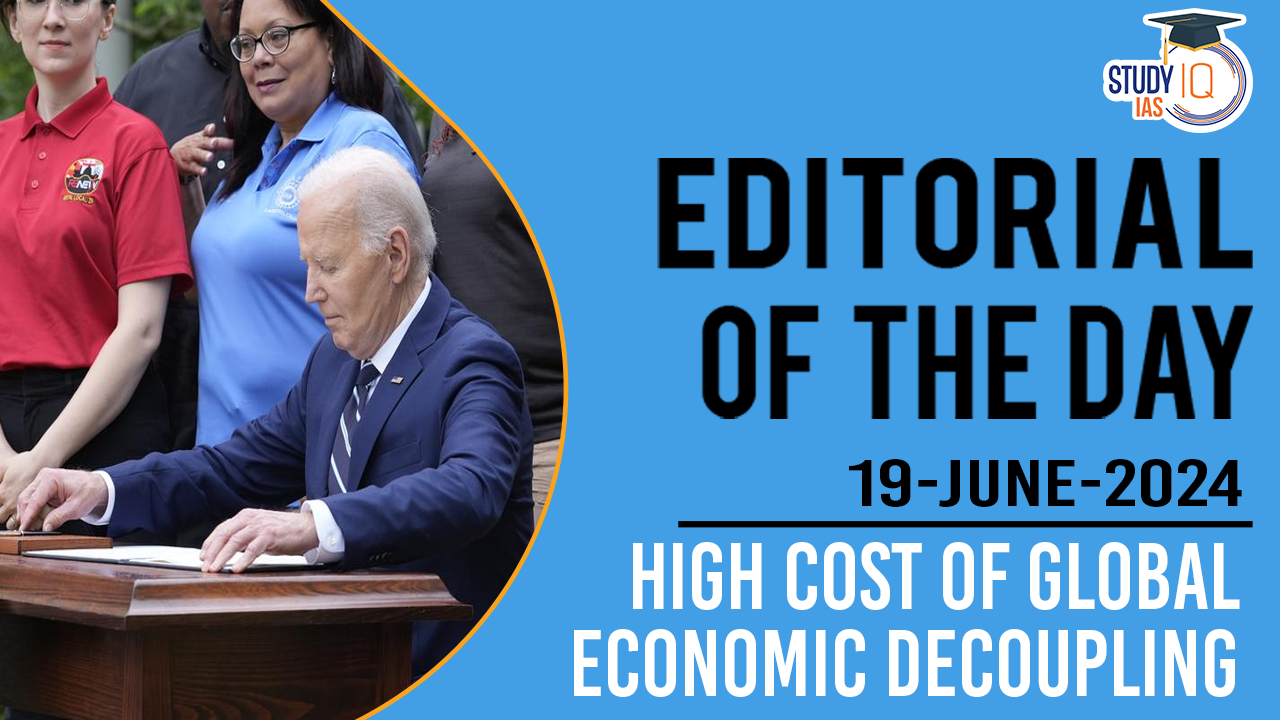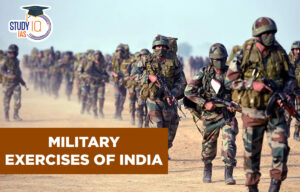Table of Contents
Context: Recently, the U.S. President Joe Biden announced a new round of tariffs on Chinese imports, raising fears of a new phase of economic decoupling.
More in News
- Economic interdependence has become a national security issue for the West, with United States’ political rhetoric suggesting China may weaponize economic vulnerabilities.
- The Biden administration’s tariff decisions are politically motivated, rather than economically, focusing on goods that will receive tariff increases.
The Story in the Tariffs
- Electric Vehicles (EVs): The U.S. imports few EVs from China, but the decision to increase tariffs on these imports aligns with the pro-union stance and supports the United Auto Workers’ efforts to boost domestic EV manufacturing.
- The tariffs, quadrupled from 25%, reflect fears of the Chinese car and battery industry’s ability to outcompete U.S. automakers.
- Medical Devices: New tariffs on medical devices aim to reduce dependency on China.
- China has been the main source of U.S. medical equipment, with imports reaching $640 million in 2023.
- Many American healthcare businesses operate in China due to its growing healthcare needs.
- Rising mistrust between China and the U.S. pressures the private sector and could increase healthcare costs for patients in both countries.
The Long-Term Effects
- The continuation of Trump-era tariffs seems a response to an aggressive China, but the global economic situation contradicts geopolitical realities. The cycle of tit-for-tat tariffs exacerbates protectionism, encouraging other countries to follow suit.
- New import restrictions on Chinese clean energy products could delay global green transition targets and the expansion of renewables. Western multinationals dependent on China’s consumer market may see reduced earnings due to China’s slowing growth and rising household debts.
Impact on Other Countries
- Australia and Brazil: Resource-rich countries like Australia and Brazil could suffer from reduced exports and lower iron-ore prices due to a slowing Chinese economy. Diversifying into other markets is challenging for these countries.
- European Union: The EU’s strategy to de-risk trade in critical raw minerals with China might provoke China to tighten control over the supply chain, potentially leading to a China-led mineral-rich grouping dictating green trade terms.
- Southeast Asia: Southeast Asia may benefit from shifting production and investment from China but remains highly dependent on Chinese technology and investment. The region’s potential to replace China as a major supplier could be jeopardised by stricter U.S. rules of origin.
- India’s Position: India could benefit from decoupling dynamics but faces challenges in gaining global market share due to its developing manufacturing sector. Despite government initiatives, India competes with South and Southeast Asian neighbours in low-end manufacturing and remains economically entangled with China.
Potential Crisis
- The cycle of escalation shows no signs of ending.
- Global investors are likely to feel the psychological impact of decoupling deeply. The U.S.’s strategy involves distancing itself from the World Trade Organization (WTO), blocking judge appointments to the WTO Appellate Body and paralysing the adjudicatory process.
- The geopolitical rivalry and economic fragmentation endanger the liberal international order, benefiting neither the U.S., China, nor the rest of the world.


 List of Military Exercises of India 2024...
List of Military Exercises of India 2024...
 GPS Spoofing and Its Impact in India: A ...
GPS Spoofing and Its Impact in India: A ...
 Amrit Gyaan Kosh Portal: A Comprehensive...
Amrit Gyaan Kosh Portal: A Comprehensive...





















